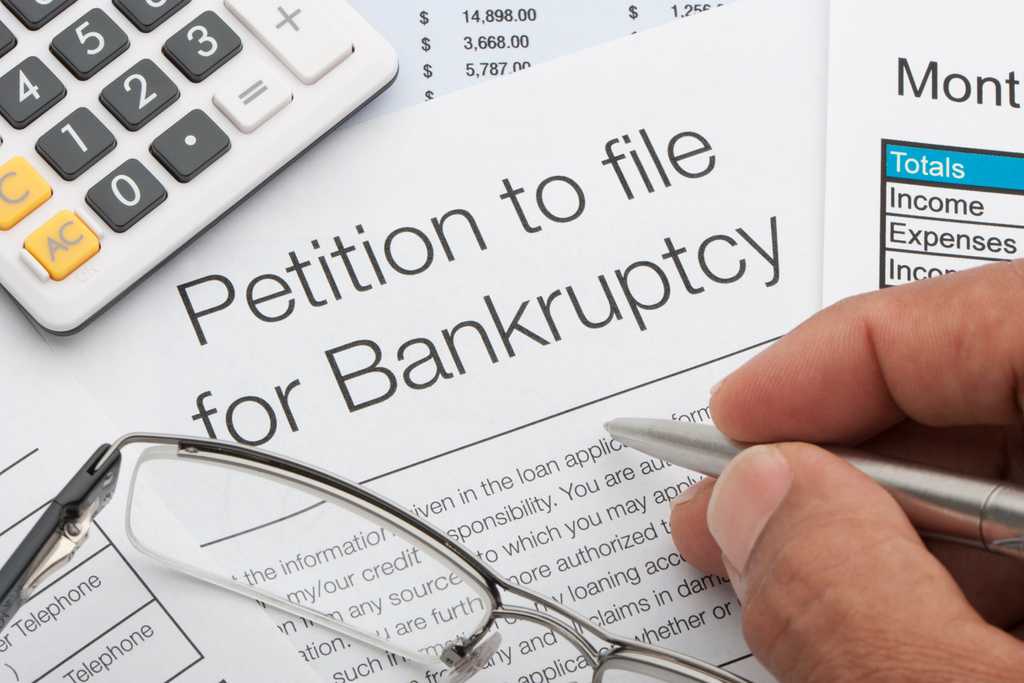Most people don’t set out on their financial journey with the intent to declare bankruptcy, but due to a combination of unlucky financial circumstances, sometimes it happens. For individuals with a bankruptcy on their credit report, it can be difficult to qualify for financial products like loans and credit cards. Luckily, a bankruptcy doesn’t stay on your credit report forever. We’ll cover how long you can expect a bankruptcy to appear on your credit report for, how bankruptcy can affect your credit, and how to start rebuilding your score.
How Long Can Bankruptcy Affect Your Credit Score?
Depending on the type of bankruptcy you file for, it can affect your credit score for 7 to 10 years. After this period of time has passed, the bankruptcy will automatically fall off your credit report. In most cases, there’s nothing a consumer can do to remove bankruptcy from their credit report sooner.
How Long Does a Chapter 7 Bankruptcy Stay on Your Credit Report?
A Chapter 7 bankruptcy stays on your credit report for up to 10 years. Chapter 7 bankruptcy is also sometimes known as liquidation bankruptcy. Consumers must typically have a low income to qualify for this type of bankruptcy, which involves selling off assets to pay off your debts. Chapter 7 bankruptcy is typically a good fit for consumers without many assets and those who have a low income.
How Long Does a Chapter 13 Bankruptcy Stay on Your Credit Report?
A Chapter 13 bankruptcy stays on your credit report for up to 7 years. This type of bankruptcy allows consumers to keep some of their assets, such as a home, as long as they complete a mandated three to five year repayment plan. Chapter 13 bankruptcy is often a good choice for consumers with significant assets and a high enough income to afford the repayment plan.
How Bankruptcy Affects Your Credit
It’s no secret that filing for bankruptcy can tank your credit score. While bankruptcy can be a stressful and often frightening experience, it’s important to remember that your credit score doesn’t define your worth as a person—it’s just a tool that lenders and financial institutions use to determine how safe a bet it is to lend you money. By filing for bankruptcy, you indicate to lenders that you may not be able to pay back any borrowed funds in the future.
The exact effect that bankruptcy will have on your credit will depend on your starting score, as well as other elements of your borrowing history. If you have a higher starting score, bankruptcy will more negatively affect your score, potentially causing a drop of up to 200 points. On the other hand, if your score is already low, bankruptcy may cause a more modest drop of around 100 points.
Over time, the effect that having filed for bankruptcy has on your credit score will lessen. Even before bankruptcy drops off your credit report, its impact will be less severe after a few years, especially if you work to build up a history of responsible borrowing in the meantime.
Can Bankruptcy be Removed from Your Credit Report Early?
Unfortunately, it’s usually not possible to remove a bankruptcy filing from your credit report before 7 to 10 years have passed. After 7 to 10 years, depending on which type of bankruptcy you file, it will automatically fall off your report. The only scenario in which you could potentially remove a bankruptcy filing from your report sooner is if it were reported in error.
How to Rebuild Your Credit After Bankruptcy
Bankruptcy can have a serious impact on your credit score, which may make it harder to qualify for loans, credit cards, and other financial products. Poor credit can mean that it’s more difficult to accomplish goals like buying a house or a car, renting an apartment, or even securing a job. Luckily, there are a few steps that you can take to begin rebuilding your credit even while there’s still a bankruptcy filing on your report.
Get a Handle on Your Finances
Bankruptcy can be caused by a variety of factors, such as losing your job, experiencing an economic downturn, or borrowing more money than you can afford to pay back. But no matter what the root causes of your bankruptcy are, it can leave you feeling stressed and insecure about your finances.
The first step toward rebuilding your credit score after filing for bankruptcy is to get your finances in order. It’s a good idea to make a list of any possessions and assets you own, your monthly income and spending, and any payment plans you may be on. You should make a budget and try to stick to it. Knowing how much money you’re taking in each month and how much you can afford to spend will help you to stay on track and form a better relationship with money moving forward.
Open a Secured Credit Card
In most cases, bankruptcy will lower your credit score to the point where lenders won’t want to lend you money. However, many will allow even borrowers with poor credit to open a secured credit card, which requires a cash deposit equal to the amount of your credit line. Over time, using a secured credit card can help to demonstrate a history of responsible borrowing and boost your credit score. Eventually, you may even be able to upgrade to a regular credit card from the same lender.
Make Payments On Time
On-time payments are the most important factor that affects your credit score. By making payments on time consistently over a period of months and years, you can raise your credit score and demonstrate to lenders that you’re able to pay your bills on time. Some services, like Experian Boost, even let you report on-time utility bill payments in order to further increase the amount of on-time payments present on your credit report.
Borrow Responsibly
After a little while of working to improve your score, you may be able to borrow money in the form of loans and credit cards once more. But just because your score has recovered enough to the point where banks are willing to lend you money doesn’t mean that you should borrow without a plan. Instead, you should borrow responsibly, only taking out a loan or credit card when it’s necessary to do so, and limiting the amount of debt you take on.
Monitor Your Credit Score
In the aftermath of bankruptcy, it can be tempting to turn a blind eye to your credit score. But it’s important to continuously monitor your score as you work to rebuild your credit. Keeping a close eye on your score can help to make sure that you spot and report any errors or inconsistencies right away. It can also help you to identify the progress you’re making with your score over time. There are plenty of free tools that you can use to monitor your credit score online.
The Bottom Line
Filing for bankruptcy can be an extremely stressful experience. And even once the process is over with, it can still take time and effort to rebuild your credit. While bankruptcy typically takes 7 to 10 years to fall off your score, its impact does lessen over time. In the meantime, the best strategy is to keep making smart financial moves that will gradually raise your score.

